Welcome to the vibrant and culturally rich island of Jamaica, where lush landscapes, captivating music, and a relaxed way of life beckon to those seeking an extraordinary expat experience. In this guide, we’ll navigate the pros and cons of living in Jamaica, helping you uncover the unique facets of this Caribbean gem and make an informed decision about calling it home.
Jamaica is more than just a tropical paradise; it’s a place where the warm embrace of the sun is matched only by the warmth of its people. As an Expat Relocation Specialist, I’m here to provide you with valuable insights into the practical aspects of life in Jamaica, from the lush beauty of its beaches to the challenges posed by hurricane seasons.
ClimateYear-round sunshine, mild temperatures.Hurricane season disruptions, humidity.
Outdoor AdventuresAbundance of outdoor activities, natural beauty.Heavy rainfall during rainy seasons.
Cultural RichnessVibrant culture, music, and cuisine.Mosquitoes and adaptation to high humidity.
Cost of LivingAffordable, especially in rural areas.Higher costs in urban regions.
Laid-Back LifestyleRelaxed pace of life, embracing leisure.Crowded tourist spots during peak seasons.
Safety and AwarenessFriendly locals, sense of community, resilience.Hurricane season awareness is essential.
Whether you’re drawn to the island’s vibrant culture, its year-round sunshine, or you simply seek a change of pace, we’ll explore the various facets of living in Jamaica so that you can embark on this adventure fully informed, prepared, and excited about what lies ahead.
Overview of Life in Jamaica
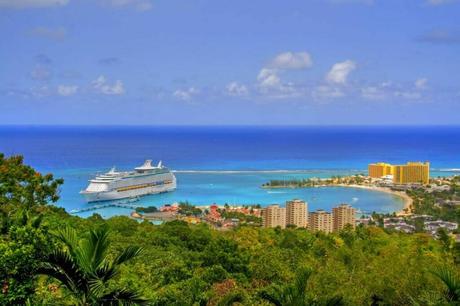
So, you’re considering the possibility of living in Jamaica, and you want to get the full picture before taking the plunge. Smart move! Jamaica offers a unique blend of vibrant culture, natural beauty, and some challenges you need to be aware of. In this section, we’ll provide an overview of the pros and cons of life in Jamaica to help you make an informed decision.
Pros of Living in Jamaica
Let’s start with the good stuff, shall we?
Vibrant Culture: Jamaica is famous for its rich and diverse culture. From reggae music to mouthwatering jerk chicken, you’ll have the chance to immerse yourself in a culture that’s celebrated worldwide. The warmth and friendliness of the Jamaican people will make you feel right at home.
Beautiful Landscapes: The island is a paradise for nature lovers. Pristine beaches, lush rainforests, and stunning waterfalls are just a part of what Jamaica has to offer. Whether you’re into hiking or simply lounging by the sea, you’ll find plenty of opportunities to soak in the natural beauty.
Cons of Living in Jamaica
Now, let’s talk about some of the challenges you might encounter:
High Crime Rates: It’s no secret that Jamaica has a higher crime rate than many other places. While violence is often concentrated in specific areas, it’s crucial to stay vigilant and take necessary precautions to ensure your safety.
Limited Healthcare Infrastructure: Healthcare facilities can be limited in some areas, and wait times can be quite long. It’s essential to have good health insurance and be prepared for occasional healthcare challenges.
Cost of Living: While housing and utilities can be affordable, imported goods and fuel can be costly. Be prepared for higher prices on items not produced locally.
Transportation Challenges: Jamaican roads can be rough, and traffic can be chaotic, especially in urban areas. You may need to adjust to the local driving style or explore alternative transportation options.
Living in Jamaica offers a unique blend of cultural experiences and natural beauty, but it’s not without its challenges. By understanding the pros and cons, you can make a well-informed decision and better prepare for your life on this captivating island.
Safety and Crime in Jamaica
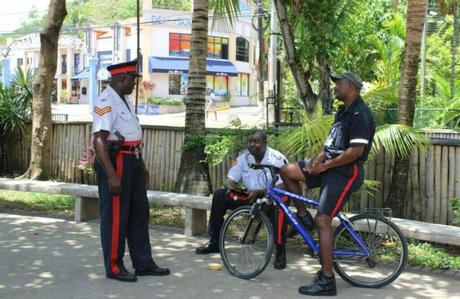
Just like any other destination, Jamaica has its unique set of pros and cons in this regard. Let’s explore what you need to know to make informed decisions about your safety while living in Jamaica.
Firstly, it’s important to acknowledge the positive aspects. Jamaica boasts a tropical climate with consistently warm and sunny days throughout the year. This climate makes it an attractive choice for those seeking a pleasant environment.
The island’s stunning beaches and lush landscapes provide ample opportunities for outdoor activities and relaxation. Additionally, Jamaican culture is deeply rooted in community and hospitality. The locals are known for their friendliness and warmth, offering a strong sense of community that can make you feel welcome and connected.
However, it’s equally important to be aware of the safety challenges. Jamaica does have a higher crime rate compared to many other places, particularly in certain urban areas. While many tourists and expatriates enjoy their time in Jamaica without encountering issues, it’s crucial to take precautions to ensure your safety.
Practical tips for staying safe in Jamaica include staying informed about the safety situation in your specific area, avoiding the display of expensive items that might attract unwanted attention, using reputable transportation services when exploring the island, securing your residence with adequate security measures, and ensuring you have comprehensive health insurance to cover any potential medical emergencies.
Familiarizing yourself with local emergency numbers and contact information for your country’s embassy or consulate is also wise.
Healthcare in Jamaica

On the positive side, Jamaica offers healthcare that is notably affordable compared to some Western countries. Routine check-ups, doctor visits, and minor medical procedures can often be quite reasonable in terms of cost.
Additionally, Jamaica has a rich history of using natural remedies and herbal medicine. Many locals turn to traditional healers and herbs for various health concerns, providing an alternative and holistic approach to healthcare that might appeal to you.
However, there are certain drawbacks to the healthcare system in Jamaica. One of the primary challenges is the limited healthcare infrastructure in some rural areas. If you reside in such regions, you may find yourself needing to travel to urban centers for specialized medical care, which can be inconvenient, especially during emergencies. Long wait times at hospitals and clinics can also be a common issue, so you’ll need to exercise patience when seeking medical attention.
Furthermore, the quality of healthcare can vary significantly across the island. Urban areas often boast well-equipped hospitals staffed with highly skilled professionals. However, in more remote regions, healthcare standards may not meet international expectations. It’s crucial to have comprehensive health insurance that covers you adequately in Jamaica since local healthcare facilities may require upfront payment.
If you rely on specific prescription medications, you should ensure that you have an ample supply and understand how to refill your prescriptions locally. Availability of certain medications might be limited. Lastly, it’s advisable to research healthcare facilities in your chosen area before your move to understand the range of services they offer and to be prepared for any potential healthcare needs.
Healthcare in Jamaica presents both advantages and disadvantages. While it can be cost-effective and offer alternative health options, there are challenges such as limited infrastructure and potentially long wait times.
By familiarizing yourself with the healthcare landscape and planning accordingly, you can ensure your well-being while embracing the beauty and culture of this captivating island nation.
Cost of Living in Jamaica

Jamaica offers a unique blend of cultural richness and natural beauty, but it’s crucial to have a clear picture of the financial landscape. In this section, we’ll delve into the pros and cons of the cost of living in Jamaica to help you make an informed decision.
On the positive side, Jamaica boasts several financial advantages. Firstly, housing in Jamaica can be quite affordable, particularly if you choose to reside in areas less frequented by tourists. You can find reasonably priced apartments and homes to fit various budgets. Additionally, utility costs, including electricity and water, tend to be lower than in many Western countries, which can result in savings on your monthly expenses.
Moreover, Jamaica’s abundance of locally grown produce means that fresh fruits and vegetables are not only readily available but also budget-friendly. This can lead to more economical grocery bills, allowing you to enjoy a healthy diet without straining your finances.
However, there are certain financial challenges to be aware of as well. Imported goods and products not produced locally can be considerably more expensive. Items such as electronics, specific clothing brands, or imported foods can significantly impact your budget. Furthermore, Jamaica relies on imported oil for energy, which leads to relatively high fuel prices.
If you plan on using a car regularly, this can affect your transportation costs. Currency exchange rates can also play a role, especially if you’re earning in a different currency. Be mindful of fluctuations that might impact your budget and consider strategies like currency hedging to protect your finances.
To effectively manage the cost of living in Jamaica, it’s advisable to create a detailed budget that encompasses all your expected expenses, ranging from housing and utilities to groceries and entertainment.
Embracing locally produced goods whenever possible can help you save costs, and considering alternatives like public transportation or carpooling can reduce fuel expenses. Additionally, if you’re earning in a different currency, staying informed about exchange rates and adopting strategies to mitigate currency risks can be advantageous.
Community and Expat Life
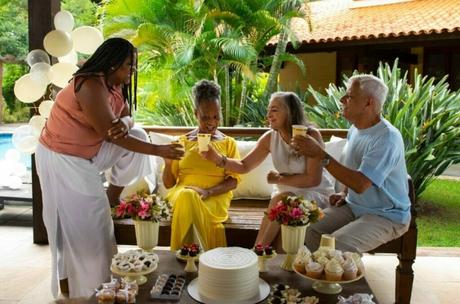
One of the most enriching aspects of living in Jamaica is the sense of community and the vibrant expat life that you can experience here. It’s not just about the stunning landscapes; it’s also about the people and the connections you’ll make. In this section, we’ll delve into the pros and cons of the community and expat life in Jamaica to help you understand what to expect during your stay.
Pros of Living as an Expat in Jamaica
Welcoming and Friendly Locals: Jamaicans are known for their warmth and friendliness. You’ll likely find it easy to build connections with the locals and experience the legendary Jamaican hospitality. Whether it’s a neighbor, a coworker, or someone you meet at a local event, you’ll often feel like part of a tight-knit community.
Expat Support Networks: Jamaica is home to a thriving expat community. Many expats have settled here, creating a network of support and friendship. This can be especially valuable when you’re adjusting to a new culture and way of life.
Cultural Immersion: Living in Jamaica provides an opportunity for deep cultural immersion. You can engage in local traditions, savor traditional Jamaican dishes, and embrace the island’s rich cultural heritage. Your expat experience can be as culturally enriching as you desire.
Cons of Living as an Expat in Jamaica
Culture Shock: While the Jamaican culture is warm and welcoming, it can be vastly different from what you’re accustomed to. Adjusting to a new way of life, different customs, and local traditions may take some time and patience.
Limited Access to Some Amenities: In more rural or remote areas, you may have limited access to certain amenities or services commonly found in urban centers. This includes shopping options, entertainment venues, and specialized medical facilities.
Potential Language Barrier: While English is the official language in Jamaica, the local Jamaican Patois or Creole is widely spoken in informal settings. Depending on your familiarity with the language, this may pose a slight communication challenge initially.
Practical Tips
To make the most of your community and expat life in Jamaica:
Engage Actively: Don’t hesitate to participate in local events, gatherings, and activities. It’s an excellent way to meet people and immerse yourself in the culture.
Join Expat Groups: Seek out expat groups or communities both online and locally. They can provide valuable insights and support as you navigate your new life.
Learn the Language: Familiarize yourself with the local language (Jamaican Patois) to ease communication and build stronger connections with the locals.
Stay Open-Minded: Embrace the differences and be open to new experiences. Culture shock is normal, but with an open mind, you’ll adapt more quickly.
Community and expat life in Jamaica offer a blend of warmth, cultural immersion, and support networks. While there may be some initial adjustments, the opportunity to build lasting connections and fully embrace the Jamaican way of life is undoubtedly one of the many rewards of living in this beautiful island nation.
Transportation in Jamaica
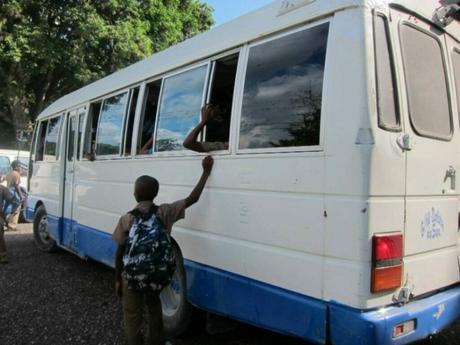
One of the significant advantages of transportation in Jamaica is the vibrant local transport system. This includes colorful route taxis, buses, and shared minibuses, known as “coasters.” These not only offer budget-friendly options but also provide an authentic Jamaican experience. They present an excellent opportunity to connect with locals and immerse yourself in the island’s rich culture.
For those with an adventurous spirit, Jamaica’s breathtaking landscapes make road trips a delightful option. The island features winding coastal roads and lush interior routes that are perfect for exploration. Whether you opt to rent a car or hire a driver, you can embark on personalized journeys that allow you to soak in the beauty of Jamaica at your own pace.
One noteworthy route is the North Coast Highway, celebrated for its spectacular coastal views. This road takes you through vibrant towns such as Ocho Rios and Montego Bay, offering a chance to explore the island’s scenic wonders as you travel.
However, it’s essential to be aware of certain challenges. In urban areas like Kingston and Montego Bay, traffic congestion can be a common issue, leading to long commutes during rush hours. Planning your schedule to avoid these peak times can make your daily commute more manageable.
Moreover, some roads in Jamaica, particularly in rural areas, may not be in the best condition. Potholes and uneven terrain can make driving an adventure in itself. While driving, it’s crucial to exercise caution and adapt to the local driving styles to ensure your safety.
Additionally, in remote or less touristy areas, you might encounter limited public transportation options, which could pose difficulties when trying to access specific parts of the island.
To make the most of transportation in Jamaica, consider planning your daily commute to avoid peak traffic hours in urban areas. Familiarize yourself with the local driving styles if you choose to drive, and explore various transportation options depending on your location and needs. Don’t hesitate to seek recommendations from locals, who often have valuable insights into the best ways to get around the island.
Working and Career Opportunities

On the positive side, Jamaica’s vibrant tourism industry is a prominent source of employment. From working in hotels and resorts to positions in restaurants and tour companies, there’s a wide range of opportunities within the hospitality sector. Whether you’re inclined towards hotel management or seek a career as a tour guide, the tourism industry has diverse career paths to offer.
Furthermore, Kingston, the capital of Jamaica, is home to several international organizations and embassies, presenting job opportunities in diplomacy, international relations, and development work. This can be particularly appealing if you have a background or interest in such fields.
Additionally, the rise of remote work has opened doors for individuals to work for companies located outside Jamaica while enjoying the island’s unique lifestyle. Many expatriates and locals take advantage of this flexibility to pursue their careers while savoring the Jamaican experience.
However, it’s essential to be aware of certain challenges. The job market in Jamaica, depending on your field, can be competitive, with limited job openings in some sectors. This can make job hunting a rigorous process, necessitating research and networking to secure opportunities.
In terms of compensation, salaries in Jamaica may not always match those in certain Western countries, so it’s crucial to research average salary levels in your profession to ensure they align with your financial expectations.
For expatriates and non-Jamaican citizens, obtaining a work permit is a requirement to legally work in Jamaica. The application process can be bureaucratic and time-consuming, so it’s advisable to initiate this process well in advance of your planned employment start date.
To navigate the working and career landscape effectively in Jamaica, conducting thorough research on the job market, building a local network, and considering the possibility of remote work can be invaluable. Additionally, if a work permit is necessary for your situation, beginning the application process early will ensure a smoother transition into the Jamaican workforce.
Working and career opportunities in Jamaica offer a range of possibilities, particularly in the tourism industry and within international organizations. However, understanding the competitive job market, salary levels, and the work permit process is essential. With careful planning, research, and networking, you can make the most of your career while enjoying the charm of this island nation.
Education in Jamaica

Education is a vital aspect to consider when you’re planning a move to Jamaica, especially if you have children. Jamaica offers a diverse educational landscape with both public and private options, each with its own set of advantages and considerations.
Pros of Education in Jamaica
Rich Cultural Experience: Enrolling your children in a Jamaican school provides them with a rich cultural experience. They’ll have the opportunity to interact with local students, learn about Jamaican history and traditions, and embrace the vibrant island culture.
Affordable Education: Public education in Jamaica is free, which can be a significant advantage for expat families on a budget. While private schools may require tuition fees, they often offer high-quality education.
Variety of Schools: Jamaica offers a variety of schools, including international, private, and public institutions. This diversity allows you to choose an educational setting that aligns with your child’s needs and preferences.
Cons of Education in Jamaica
Curriculum Differences: The curriculum in Jamaican schools may differ from what your children are accustomed to in their home country. This can pose challenges when it comes to transitioning between educational systems.
Facilities and Resources: While there are excellent schools in Jamaica, some public schools may have limited facilities and resources compared to private or international schools. It’s essential to research and select a school that meets your expectations.
Admission Requirements: Admission to certain schools, especially international institutions, may have specific requirements, including standardized testing or language proficiency exams. Ensure you meet these requirements during the application process.
Practical Tips
To navigate the educational landscape in Jamaica effectively:
Research Schools: Research schools thoroughly, considering factors like curriculum, facilities, and teacher qualifications. Visit the schools if possible to get a firsthand feel for the environment.
Language Proficiency: If English is not your child’s first language, consider language support programs to ensure they can comfortably participate in class.
Admission Timeline: Be mindful of admission timelines, as application processes for some schools may start well in advance of the school year.
Expat Communities: Connect with local expat communities and forums, as they often have valuable insights and recommendations regarding schools in Jamaica.
Education in Jamaica offers a blend of cultural immersion and diverse educational options. While there are challenges such as curriculum differences and admission requirements, careful research and planning can help you find the right educational fit for your children in this vibrant island nation.
Climate in Jamaica

One of the most significant advantages of living in Jamaica is the year-round sunshine. Thanks to its tropical location, the island enjoys a wealth of warm and sunny days, making outdoor activities and beach trips a regular part of your life.
Along with the sun, Jamaica offers relatively mild temperatures, particularly in coastal areas, with average highs in the mid-80s°F (29-30°C) and cooler evenings, ensuring comfortable year-round living without extreme temperature fluctuations.
Jamaica’s climate contributes to the lush greenery that blankets the island. The consistent warmth, occasional rainfall, and tropical conditions foster colorful flowers, palm trees, and exotic plants, creating a visually stunning environment around you.
However, it’s essential to be aware of certain considerations. Jamaica is occasionally in the path of hurricanes during the hurricane season from June to November. While the island is well-prepared for such events, it’s crucial to stay informed and follow precautions to ensure safety.
Additionally, Jamaica experiences two rainy seasons, one from May to June and another from September to November. These periods can bring heavy rains, which may lead to localized flooding and transportation disruptions. The tropical climate also means higher humidity levels, which might take some adjustment, especially if you’re coming from a drier climate.
Furthermore, the warmth and humidity create a suitable environment for mosquitoes, and mosquito-borne diseases like dengue fever are a concern, necessitating the use of insect repellent and preventive measures.
To make the most of Jamaica’s climate, it’s essential to be prepared for hurricanes by familiarizing yourself with hurricane preparedness plans and staying informed during the hurricane season. Invest in quality rain gear and waterproof footwear to stay dry during the rainy seasons, and stay well-hydrated due to the warmth and humidity. Using mosquito repellent and considering measures like screens or bed nets for protection against mosquitoes is also advisable.
Jamaica’s climate offers abundant sunshine and a mild tropical atmosphere, creating a perfect backdrop for a vibrant island life. While the hurricane season, heavy rains, humidity, and mosquitoes can be drawbacks, proper preparation and adaptation to the climate will allow you to fully embrace the beauty and warmth of Jamaica during your stay.
Recreation and Leisure in Jamaica
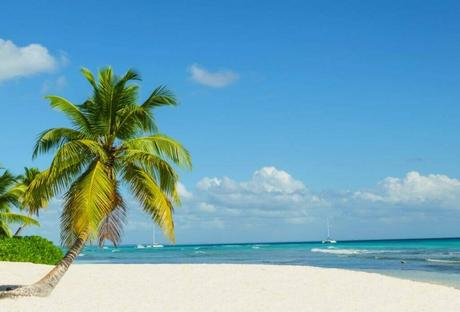
First and foremost, Jamaica is celebrated for its pristine beaches. With their powdery white sands and crystal-clear waters, they provide the perfect setting for sunbathing, swimming, or engaging in thrilling water sports like snorkeling and scuba diving. You’ll have easy access to some of the most exquisite beaches in the world, right at your doorstep.
If you’re an outdoor enthusiast, Jamaica is a dream come true. The island offers a diverse range of activities for nature lovers. From hiking in the lush Blue Mountains to exploring enchanting waterfalls like the iconic Dunn’s River Falls, or even embarking on exhilarating zip-lining adventures through rainforests, the options are endless.
Jamaica isn’t just about nature; it’s a hub of vibrant culture. You can immerse yourself in the lively Jamaican culture by dancing to reggae music, indulging in mouthwatering jerk cuisine, and partaking in colorful festivals like the renowned Reggae Sumfest. There’s a constant buzz of cultural activities to keep you engaged and entertained.
One of the significant advantages of Jamaica’s lifestyle is its tropical climate, ensuring year-round outdoor enjoyment. You can plan outdoor activities, events, and adventures without the constant worry of weather-related disruptions that you might face in other regions.
However, it’s essential to be aware of certain considerations. Jamaica is located in a hurricane-prone region, which means that the hurricane season, typically from June to November, can occasionally bring disruptions to your outdoor plans. Staying informed about weather forecasts and having a contingency plan is advisable during this period.
Additionally, the tropical climate attracts insects, including mosquitoes. While these are a natural part of the environment, using insect repellent and taking precautions is essential to avoid insect-borne diseases.
Lastly, Jamaica’s popularity as a tourist destination means that during peak tourist seasons, some recreational spots and attractions can get crowded. It’s wise to plan your visits during non-peak times to fully enjoy your experience without the hustle and bustle.
To make the most of your recreational opportunities in Jamaica, prioritize exploring its stunning beaches, each offering a unique experience. Dive into thrilling outdoor adventures such as hiking, river tubing, and exploring mesmerizing waterfalls.
Immerse yourself in Jamaican culture by attending music festivals, savoring local cuisine, and mingling with the warm and friendly locals. Keep a keen eye on weather forecasts during hurricane season, and take precautions to protect yourself from insects.
Conclusion: Living in Jamaica Pros and Cons
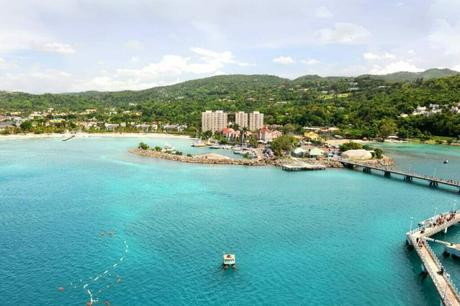
As we conclude this exploration of the pros and cons of living in Jamaica, I hope you’ve gained valuable insights into what life on this enchanting island entails. Jamaica offers a unique blend of natural beauty, vibrant culture, and warm, welcoming communities. The decision to make it your home should be based on your personal preferences and priorities.
Remember that while Jamaica is a place of immense charm and opportunity, it also presents its share of challenges, such as hurricane seasons and the need for adaptation to its tropical climate. By staying informed, preparing adequately, and embracing the island’s spirit of resilience, you can truly make the most of your life in Jamaica. Whether you’re enticed by its golden beaches, the rhythm of reggae, or the promise of a more relaxed lifestyle, Jamaica has much to offer, and it’s a place where lasting memories and meaningful experiences await. As your Expat Relocation Specialist, I’m here to support you in your journey, ensuring that your transition to life in Jamaica is as smooth and rewarding as possible.
FAQ

Downsides of Living in Jamaica
Living in Jamaica offers a vibrant culture and natural beauty, but it also comes with challenges. One significant downside is the hurricane season, from June to November, which can disrupt daily life. Additionally, the high humidity and occasional heavy rainfall may require adjustment. Mosquito-borne diseases like dengue fever are a concern, necessitating precautions. Crowds in tourist spots during peak seasons can be an inconvenience. It’s crucial to stay informed about these aspects and plan accordingly for a comfortable life in Jamaica.
Is Jamaica a Good Place to Live?
Jamaica can be a great place to live for those who appreciate a warm tropical climate, stunning beaches, and a rich cultural scene. The island offers diverse recreational opportunities and a relaxed lifestyle. However, it may not suit everyone, particularly those who prefer a cooler climate or have concerns about hurricane-related disruptions. It’s essential to consider personal preferences and priorities when evaluating Jamaica as a place to live.
How much money do you need to live comfortably in Jamaica?
The cost of living in Jamaica can vary widely depending on your lifestyle and location. On average, a comfortable living in Jamaica might require a monthly budget ranging from $1,500 to $2,500. This should cover expenses like housing, groceries, transportation, and leisure activities. Living in urban areas tends to be more expensive than rural ones. It’s crucial to research and plan your budget according to your specific needs and preferences to ensure a comfortable life in Jamaica.

